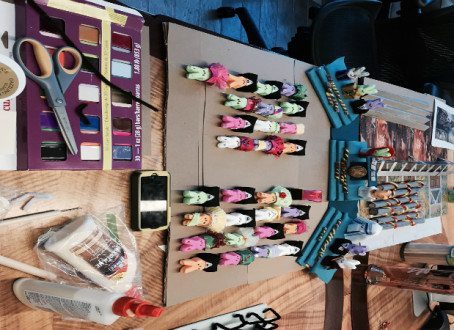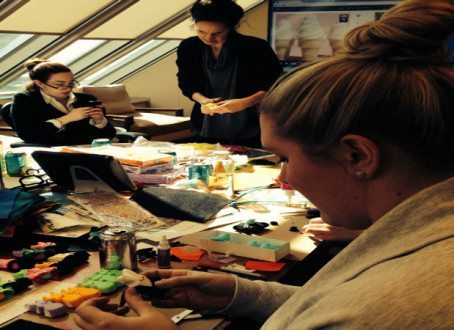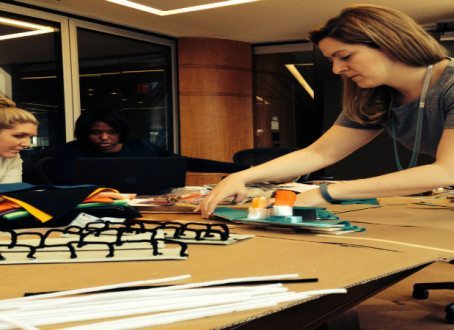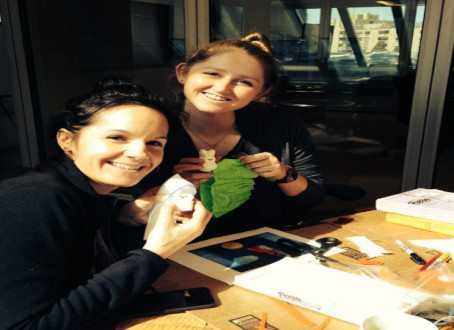What do you get when you combine the Case Foundation team, 240 peeps, 2 pounds of wood glue, 50 sheets of assorted felt sheets and 3-dozen pipe cleaners? A one-of-a-kind, handmade diorama depicting “Live Tweeting of Nobel Peeps Prize Winners Throughout Time” in the Washington Post’s 2015 Peeps Diorama contest!
We’re celebrating past Nobel Peace Prize winners who took risks, who were bold and who failed forward, including Martin Luther King, Jr., Malala Yousafzai, Mother Theresa and the Dalai Lama. We honor their contributions to the world as they stand on stage before a packed house in this recreation of the ceremony at the Oslo City Hall. True to the Case Foundation’s style, we’ve also integrated technology into the scene and imagined what they would have tweeted—had they been able to live-tweet the acceptance of their award.
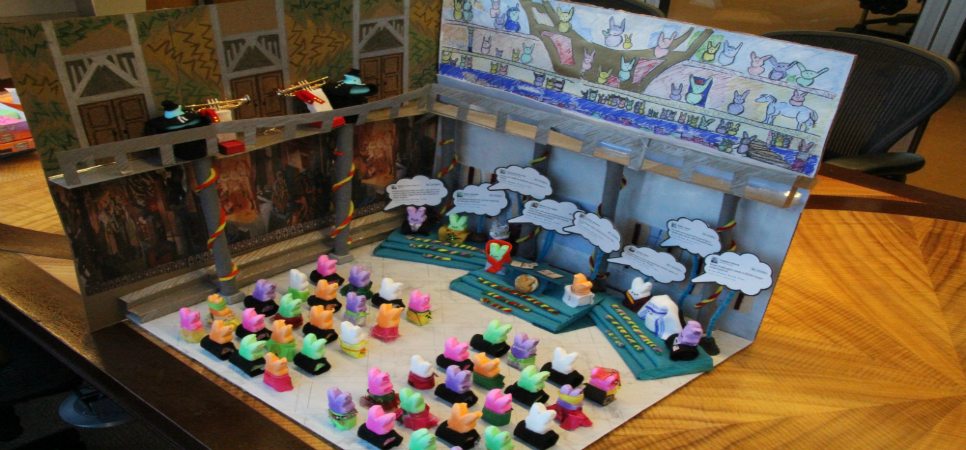
More than 400 submissions were entered into the Peeps Diorama contest, of which only 32 were selected to compete in the “Peep-le’s Choice” competition. Every day starting today through March 20, 2015, readers can vote for their favorite diorama in a March Madness style bracket challenge.
Let’s show everyone just how powerful peeps doing good can be!
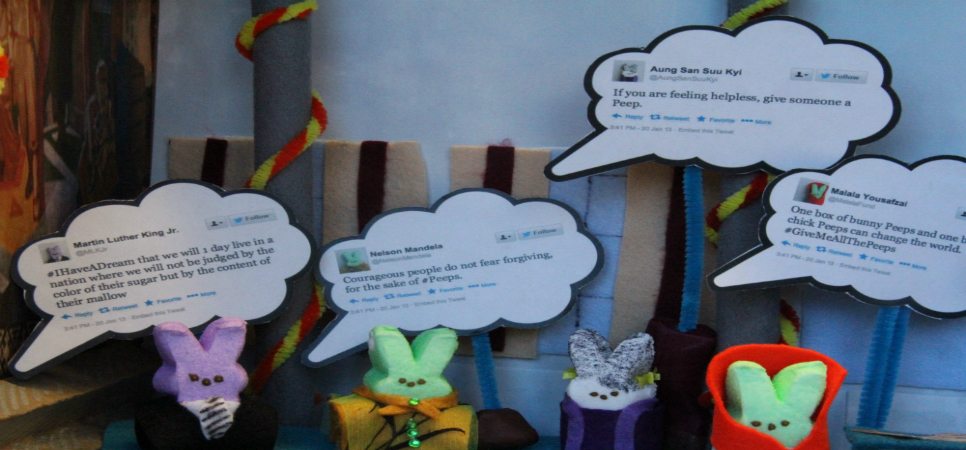
Martin Luther King, Jr.: #IHaveADream that we will 1 day live in a nation where we will not be judged by the color of our sugar, but by the content of our mallow.
Nelson Mandela: Courageous people do not fear forgiving for the sake of #Peeps.
Aung San Suu Kyi: If you are feeling helpless, giving someone a Peep
Malala Yousafzai: One box of bunny peeps and one box of chick Peeps can change the world. #GiveMeAllThePeeps
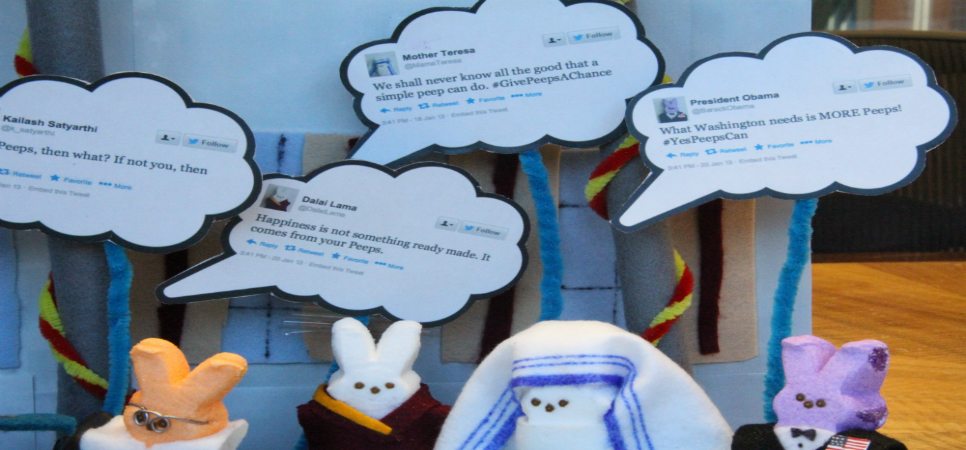
Kaliash Satyarthi: Peeps, then what? If not you, then who?
Dalai Lama: Happiness is not something ready made. It comes from your Peeps.
Mother Theresa: We shall never know all the good that a simple Peep can do. #GivePeepsAChance
President Obama: What Washington needs is MORE Peeps! #YesPeepsCan
Simply click on our diorama “Live Tweeting Nobel Peeps Prize Winners Throughout Time” and then submit your vote daily! Thank you in advance for your support!
BONUS: Here are some behind the scenes pictures of the team in action!
